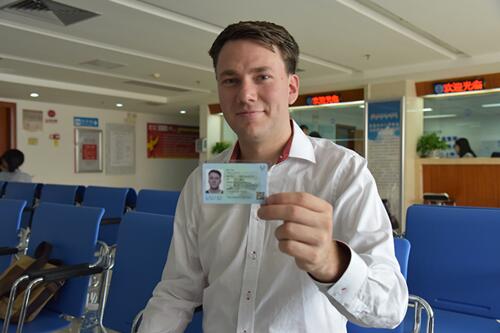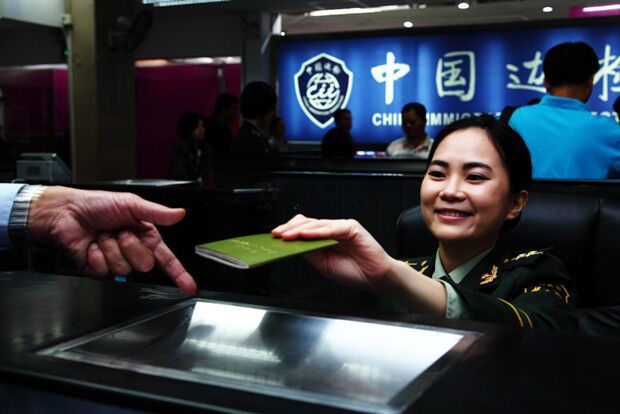President Xi Jinping said in a panel discussion for the 13th National People’s Congress on March 7 that economic development is the nation’s core mission, innovation is the most important driving force behind development and talent is the most important resource for that innovation.
As the most essential resource for scientific and technological innovation and the main factor for enhancing competitiveness, talent has become a strategic support for every country or region, not just Guangdong.
Over the last few years, recruitment of top line talent has been accelerating across the country. "With rapid economic globalization, China has become the top destination for academics and professionals worldwide looking for long-term development, and inter-regional competition for this pool of talent has begun," Wang Huiyao, president of the Center for China and Globalization said during an interview with China Daily.
Until last year, Guangzhou and Shenzhen, Guangdong’s two major metropolises, have made the top-10 ‘Amazing China - The most attractive cities for foreigners’ list for 7 consecutive years now, since the list’s first publication in 2010. Now the entire province has launched various stimulus policies to entice talent from around the world.

In January of this year, Guangdong became one of the nine provinces nationwide to pilot the new visa policy. The new visa rules are expected to benefit over 5000 individuals already working in the province and help attract the scientists, entrepreneurs and industry leaders needed for this recent development push.
The new policy allows R Visa holders enjoy multiple-entries, and is valid from 5 to 10 years with a duration of 180 days at most for each stay. In addition, this policy also extends to the spouse and any children of the visa holder.
On December 4th last year, the Guangdong government issued ten measures to boost foreign investment.
One of the ten measures was expanding the ‘Guangdong Superior Talent Card’ program. The ‘Guangdong Superior Talent Card’ policy, which aims to attract a greater number of top-flight academics and professionals to settle in the province, allows card holders, their spouses and any children to be regarded as a registered permanent resident of the city, and enjoy the same policies in housing, education, social insurance, car-purchasing, assessment of professional titles, etc.
"Guangdong is very open to hear advice from foreign enterprises and we took part in the drafting of these new policies." Shang Huijie, vice president of Siemens China, told Newsgd.com.

On August 1st 2016, the province outlined sixteen policies to simplify the entry process for and encourage retention of, top-flight overseas talent and innovators in Guangdong. Furthermore the Pearl River Talent Plan has been in effect since 2014, developing a batch of young and outstanding individuals in natural science, engineering technology and philosophical social science every year. In 2016, Guangdong became the first in a group of provinces in China to pilot the new Foreigner’s Work Permit System, through which individuals in Band A are eligible for ‘green channel’ service. It offers paperless verification pre-entry, an expedited approval process and other measures designed to draw in high-end academics and professionals.
In addition to the provincial level, some cities across Guangdong also issued their own policies to encourage overseas talent to relocate here.

2017 Job Fair for Foreigners held in Guangzhou
In May 2016 Guangzhou, for example, launched the "talent green card policy" enabling holders to enjoy the same benefits as local citizens. During the 2017 Convention on the Exchange of Overseas Talent, Guangzhou unveiled the Kapok Plan. The plan will not only offer enterprises run by overseas talent a subsidy of up to a maximum of two million RMB, but also provide further support for them in terms of financing, intellectual property protection, tax breaks and so on. The city also has also started offering up to ten million RMB in housing subsidies to those at the pinnacle in their field such as Nobel Laureates.
Meanwhile the government of Shenzhen, another of the province’s economic powerhouses, has started to finance and build incubators overseas, including Silicon Valley, Europe and Israel, as the city reaches out to tech leaders across the globe. From last year, the city started to push forward the nation’s program for the simplification of the work visa and permanent residence permit applications for foreign workers. The city also plans to build three to five special schools for expats’ children. The city will construct at least 300,000 homes for immigrants over the next decade, while constantly striving for improvement in other areas, such as local medical services. The city aims to become a hub for science and technological talent by 2030, similar to Silicon Valley.
Four cities across Guangdong (Guangzhou, Shenzhen, Shantou and Shaoguan) have set up institutions to provide services for global talent, under name the Administration of Foreign Expert Affairs.

On Dec. 12, 2017, Guangdong Provincial Public Security Department issued 18 measures to support construction of the Guangdong - Hong Kong - Macao Greater Bay Area
Now, Guangdong is utilising the opportunities brought by the Guangdong-Hong Kong-Macao Greater Bay Area to draw in global talent. Nansha, a district in Guangzhou which locates at the center of the Bay Area and being one of the Free Trade Zones of Guangdong, grants a large package of subsidies and rewards to high-end talents settled down. These talents include Nobel laureates, experts within the national Recruitment Program of Global Experts and talents in the key sectors for development.
On December 12th last year, Guangdong’s Provincial Public Security Department issued 18 measures, including an extension to the time window for Visa-Free Transit and making it easier to apply for permanent residency in the Guangdong-Hong Kong-Macao Greater Bay Area. According to Zheng Dong, Former Deputy Director-General of Guangdong’s Provincial Public Security Department, the 18-measures aim to facilitate construction of the Guangdong - Hong Kong - Macao Greater Bay Area and attract more industry leaders and leading academics to settle down in the Greater Bay Area.
"The number of foreign executives who come to Guangdong to work and do business will continue to grow, due to the province's improving environment, rapid economic development and myriad business opportunities," said an official who declined to be named.
Over recent years, there have been about 150,000 expats registered as working in Guangdong each year, accounting for one sixth of the country's total.
Author | Keane
Editor | Wing & Simon Haywood
















